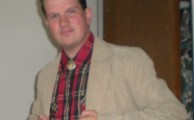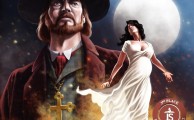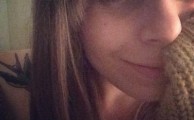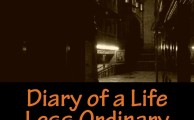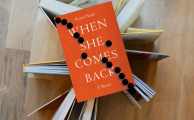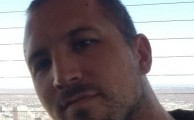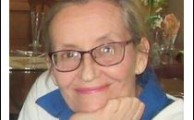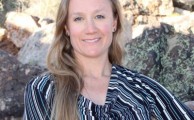Jay Mackey Interview
The Indie Book Butler Interview – Jay Mackey
Tell us a little about yourself and your work.
I spent the bulk of my career in advertising and marketing before turning to writing fiction. Some might say that advertising is fiction, but they’d be wrong. I write thrillers, and I love stories in which normal people are put into extraordinary circumstances.
 In The Third Rescue, we have CJ, a 17-year-old high school kid who’s got an assignment to search his ancestry. But the search goes wrong almost from the start, as there is something wrong with his DNA test, and then his grandmother, who he is going to write his ancestry paper on, says she is an orphan. We also follow a parallel storyline, in which CJ’s grandfather is in the desert in 1964 when he gets caught up in a strange gunfight. When these two storylines intersect CJ finds himself in grave danger.
In The Third Rescue, we have CJ, a 17-year-old high school kid who’s got an assignment to search his ancestry. But the search goes wrong almost from the start, as there is something wrong with his DNA test, and then his grandmother, who he is going to write his ancestry paper on, says she is an orphan. We also follow a parallel storyline, in which CJ’s grandfather is in the desert in 1964 when he gets caught up in a strange gunfight. When these two storylines intersect CJ finds himself in grave danger.
You’ve got 20 words to sell us on your work. Tempt us.
Characters you care about. A fast-moving plot. Twists to keep you interested. Easy to read. Hard to put down.
Were there any particular parts of the writing/publishing process that you struggled with?
I hate the trying to get published part. Especially trying to get traditionally published. I worked at that for years, (I’ve written 5 novels, but only published one,) before deciding to self-publish.
Where do you like to write?
I have a home office in our condo where I can hole-up and write. When I’m on a roll, I can write anywhere, but if I’m deep in the creative process, I like to work in the office.
Is there anything you must have in order to write?
An idea is really all I need. And hope. It helps to have hope that someone besides yourself will appreciate the work. After publishing and seeing the reaction of readers, I feel much more hope than I’ve had for awhile.
What books have influenced you most, both as a person and as an author?
Larry Niven’s LUCIFER’S HAMMER. He was one of the greats in science fiction. This book was terrific because there was a great catastrophe, and the story was about a few people trying to survive, not about some superhero saving the world.
Elmore Leonard’s GET SHORTY, for his spare prose. He gave writers a perfect piece of advice when he said he leaves out the parts that readers skip.
John Le Carre’s TINKER TAILOR SOLDIER SPY. He was able to build tension like no one else.
What is the one thing that has helped you develop most as an author?
Continuing to write has enabled me to grow as a writer. The early drafts of my first books were pretty rough. I wouldn’t want anyone to read those now, although I may go back and rewrite them because there were some great ideas in them. But the more you write, the better you get. At least, I think that’s true.
What do you want to achieve most from your writing?
A sense of accomplishment, of self-satisfaction. Like most writers, when I started I had dreams of making money. I no longer think about that, but I really like writing, and hope others will like what I write. That’s enough.
Is there something specific you do to improve your writing?
I read a lot. It helps me recognize poor writing vs. good writing vs. great writing. Hopefully, I’m learning how to avoid the mistakes found in poor writing, and how to elevate the craft of my writing so that it’s at least good writing.
What is the ideal relationship between editor and author?
It’s one of trust. You’ve got to trust that you’re both on the same side, and that each of you has expertise to bring to the party.
If you had a direct line to someone who loves or hates your writing, what would you say?
What is it that you love/hate? How can I do more of that/eliminate that?
If you could give one piece of advice to an aspiring author, what would it be?
Keep writing. My fifth book is much better than my first, not because it’s necessarily a better story, but because it’s written better.
What does your writing future hold for you?
I’m going to keep writing until I physically can’t do it anymore. I don’t think I’ll ever run out of stories to tell. At some point, I’ll probably run out of time in which to tell them. I hope that is many years in the future.
How have you set about the task of creating enticing cover art?
I worked in advertising for many years, and so I’m comfortable in directing and evaluating art, even though I have no artistic ability of my own. I hired a professional cover designer, gave her some direction, and then gave her feedback on her ideas so that we ended up with what I think is a great cover.
How often do you read? What genre?
I read every day, and probably read 50 or so books a year. I read mostly in the genre that I’m writing, sci-fi now, but I also read thrillers and mysteries, and an occasional novel in other categories, like literary fiction or historical fiction. I don’t read much non-fiction.
Thanks for taking the time to answer our questions. Best of luck in the future.
For more on Jay and his work, please visit:









